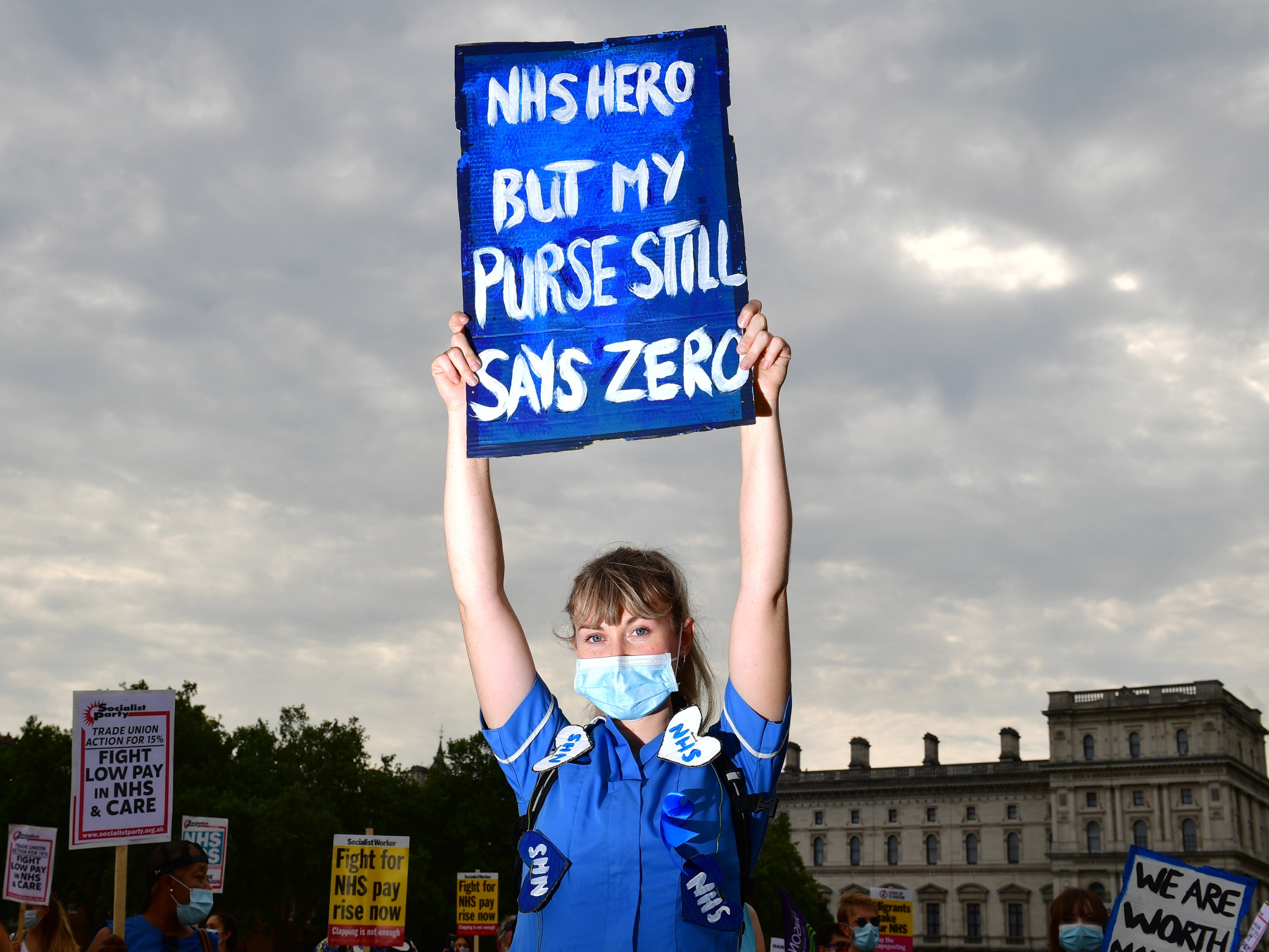Britons £1,000 worse off a year in real terms under Tory government, Labour analysis finds
Wage decline ‘sign of broken economic model,’ says Keir Starmer’s party

Workers in the UK have suffered an average pay cut of £1,000 in real terms each year since the Conservatives took power a decade ago, according to new analysis.
Labour claimed the Tories had “totally failed” working people after government figures showed salaries have failed to keep pace with inflation ever since David Cameron became prime minister.
Official data from the Office for National Statistics (ONS) showed that wages have fallen by 3.45 per cent in real terms since Labour left office in 2010.
If adjusted for inflation during period, the average weekly wage should be £609.40. But the actual average weekly wage is £589.70 – amounting to a pay cut of around £1,040 per year.
Labour said the data showed how workers in some parts of the country have fared particularly badly from the stagnation in wages in the British economy.
Workers in almost three quarters of communities in Yorkshire, the north east, the south east and east of England have seen their wages fall since the Tories came into power.
Labour called for an immediate increase in the minimum wage to at least £10 an hour. “This government has totally failed working people,” said Angela Rayner MP, Labour’s deputy leader.
She added: “In-work poverty is at record levels and millions of working people are struggling to make ends meet whilst mates of ministers and Conservative donors are given billions of pounds of taxpayers’ money.”
Ms Rayner, shadow secretary of state for the future of work, said the wage fall was “a sign of a broken economic model under the Conservatives that people working full-time or even multiple jobs are not able to make ends meet and millions of children are growing up in poverty in working families”.
She promised Labour would immediately raise the national minimum wage and also give workers more power to negotiate pay rises.
“It’s time to make our economy work for working people,” Ms Rayner added. “Everyone should earn a fair day’s wage for a fair day’s pay and earn enough to raise a family and live a decent, secure and fulfilling life.”
News of a pay freeze for police and teachers sparked outrage last month, while it also emerged the 3 per cent pay rise for doctors and nurses will come out of the existing NHS budget.
Half of all workers in the UK suffered a real-terms pay cut in 2020, according to recent research by Resolution Foundation. The think tank said average weekly earnings being “hugely disrupted” by the number of people furloughed during the Covid lockdowns.
But recent figures show pay levels have begun to recover from the impact of the pandemic. Average weekly earnings rose by 7.4 per cent from April to June compared with a year earlier, according to the ONS.
Labour’s analysis on wage stagnation in the economy comes as Sharon Graham was elected the new leader of Unite on Wednesday.
Becoming the powerful union’s first female general secretary, Ms Graham vowed to keep clear of “factional” Labour politics and fight for better jobs, wages and conditions.
“I am not a member of any Unite or Labour faction – other than my own supporters’ group,” Len McCluskey’s replacement said after her victory was announced. “Unite members at the workplace want real change, not a settling of old scores or a Westminster rematch.”






Join our commenting forum
Join thought-provoking conversations, follow other Independent readers and see their replies
Comments